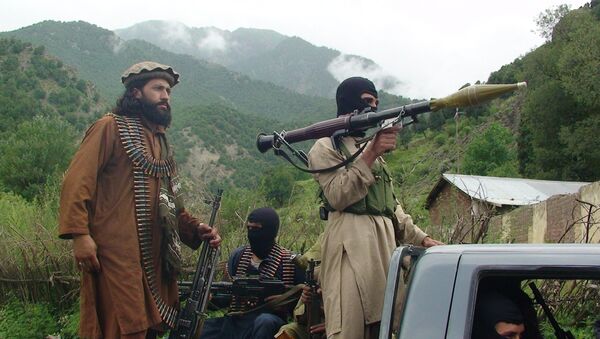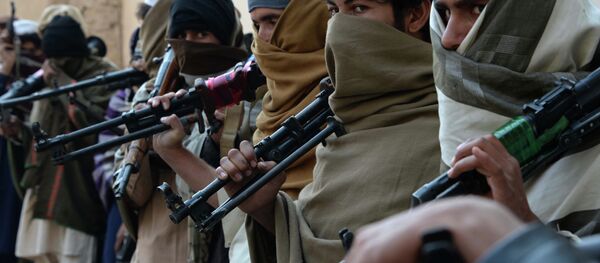While the Afghan government is making every effort to cope with the problem posed by the Taliban movement, a new dark cloud called Daesh has emerged on Kabul's horizon.
"The most potentially game-changing development in Afghanistan is the fracturing of the Taliban movement following news this summer that Taliban supreme commander Mullah Mohammed Omar died over two years ago," Lisa Curtis, a senior research fellow in The Heritage Foundation's Asian Studies Center, writes in her article for The National Interest.
Indeed, in the past few months Taliban factions have been involved in internal strife.
"A fractured Taliban is a weaker Taliban," she stresses.
On the other hand, the Taliban's fracturing… could facilitate the rise of the so-called Islamic State [Daesh] in the region," Curtis notes.
Daesh is seemingly determined to impose its control over Afghanistan. It has been making repeated attempts to gain ground in the region since at least January 2015. Daesh leaders have announced the establishment of a so-called Khorasan Province (KP).
The expert explains that Khorasan is an Islamic term which is used to refer to the territory of Afghanistan, parts of Pakistan and neighboring countries in the region.
"According to the Hadith (sayings attributed to the Prophet Muhammad), south-central Asia maintains a key role in establishing a global caliphate, since the final battle between Muslims and non-Muslims before the end times supposedly will take place in the region," she narrates.
Curtis refers to the Pentagon's latest report which says that Daesh is expelling the Taliban from its stronghold in Nangarhar Province of Afghanistan.
"The presence of the Islamic State of Iraq and the Levant [Daesh] — Khorasan Province (IS-KP) primarily in the eastern province of Nangarhar remains a concern for the Taliban, the Afghan government, and the international community. Through attacks against a United Nations (UN) vehicle and the ANDSF [Afghan National Defense and Security Forces] in September 2015, IS-KP has demonstrated that it is operationally emergent," the report reads.
The situation is hanging in the balance, the expert stresses, warning Washington against backing away and allowing the regional players "to sort it out."
According to Curtis, the Pentagon and NATO should help the Afghan government to fight this "dual threat" posed simultaneously by the Taliban and Daesh.
The expert notes that Pakistan in its turn "should be motivated by ISIS [Daesh] encroachment to push the Taliban leaders under its influence to the negotiating table."
However, the question remains open as to what strategy the Pakistani government should adopt.



